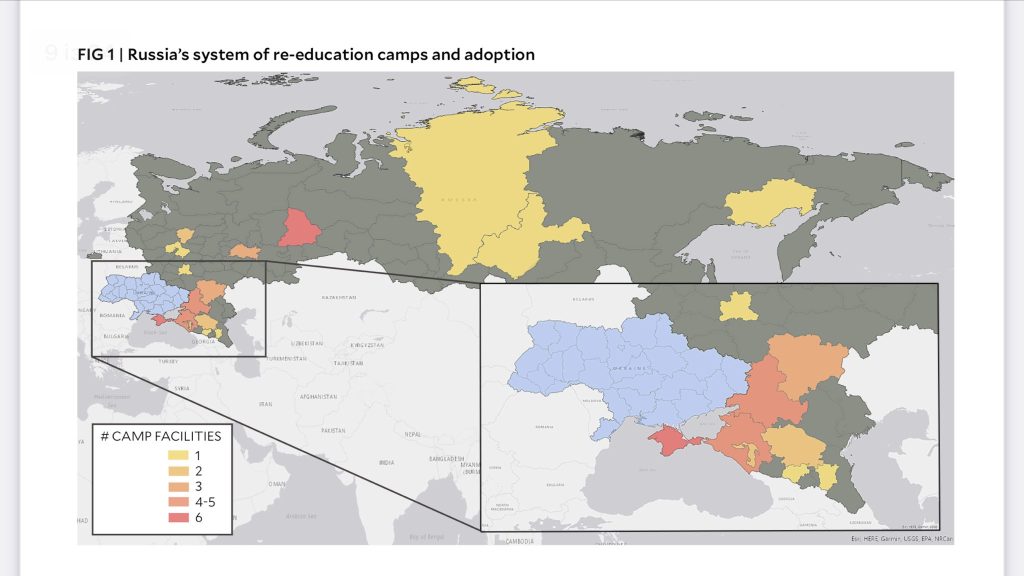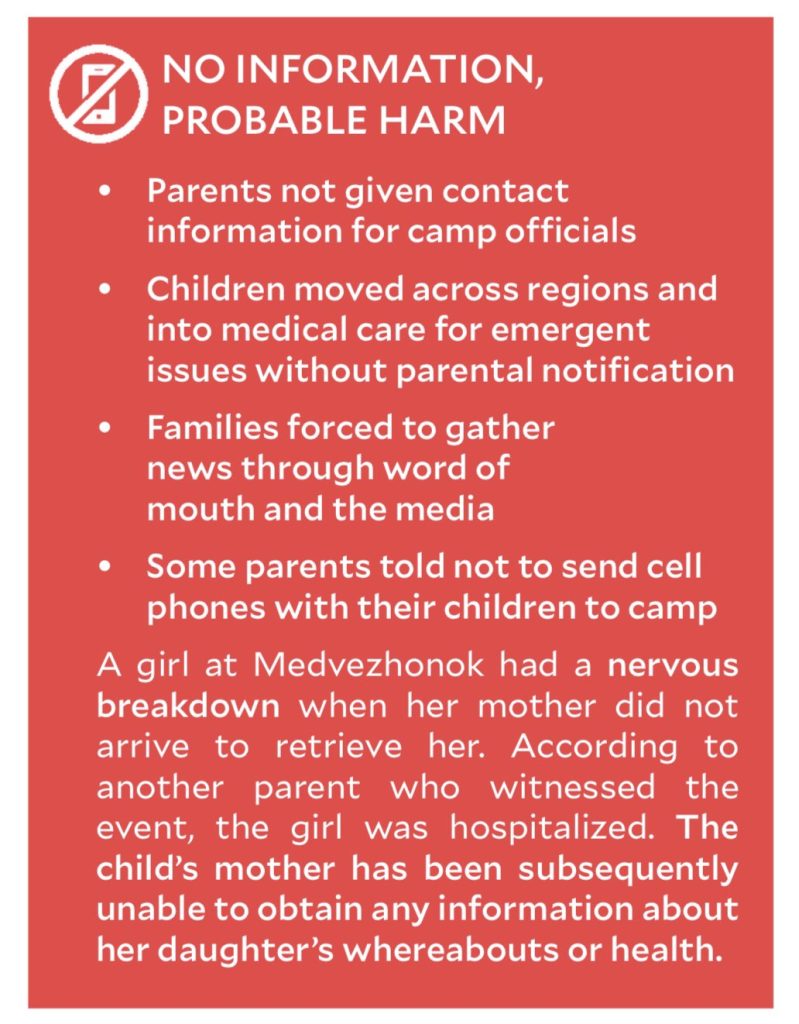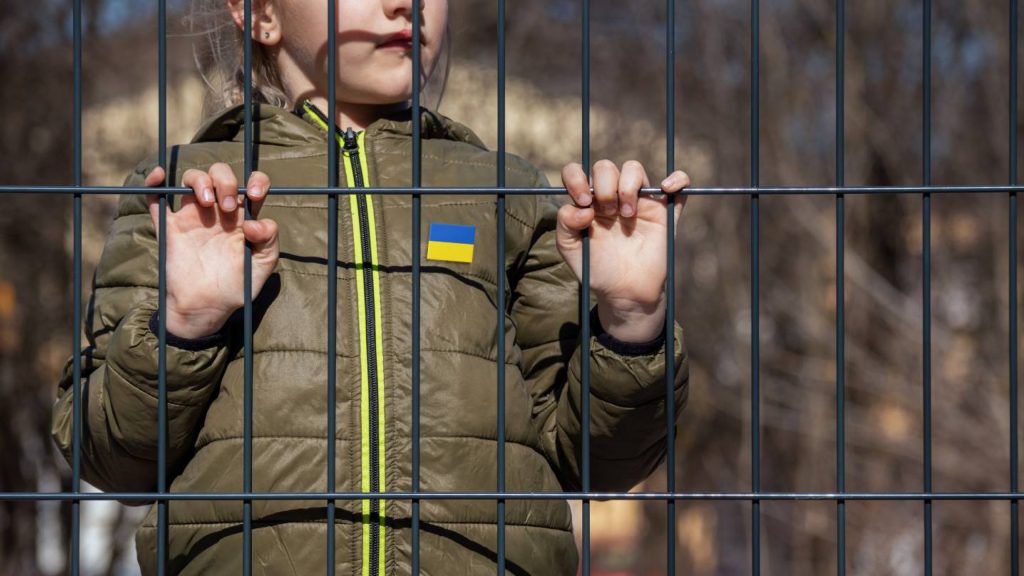According to a report from the Conflict Observatory, a State Department-supported initiative, more than 6,000 children are in Russia’s custody. Children from Ukraine ages four months to 17 years have been held at camps and other facilities since the full-scale invasion of Ukraine on 24 February 2022.
At least 43 facilities are in the network. 12 camps around the Black Sea, 7 in occupied Crimea, and 10 clustered around Moscow, Kazan, and Yekaterinburg. 11 of the camps are located over 500 miles from Ukraine’s border, including two camps in Siberia and one in Russia’s Far East.
The network of children’s facilities stretches from one end of Russia to the other: the furthest camp this investigation identifies is in Magadan oblast in Russia’s Far East near the Pacific Ocean, approximately 3,900 miles from Ukraine’s border with the Russian Federation.
According to researchers, the camps’ main objective is “political re-education,” which involves exposing kids to “Russia-centric academic, cultural, and patriotic” content. Children appear to be subjected to military instruction at two camps in Crimea and Chechnya, where they are taught about weapons and military equipment.
Reporters were informed by Nathaniel Raymond, a researcher at the Yale School of Public Health’s Humanitarian Research Lab, that Russia had not complied with the Geneva Conventions requirements to establish a transparent registration system for kids who were separated from their families during a war, transfer kids to a neutral country, and take measures to ensure the kids retained their national and ethnic identities.

The report claims that the majority of Ukrainian children who have been in Russian custody originated from Russian-occupied areas like Donetsk and Luhansk, while a minority were taken from Kharkiv, Kherson, and Zaporizhzhia before those areas were retaken by Ukrainian forces. Researchers said the report reflects six months of documentation from a variety of sources, including satellite imagery and Russian state media.
At least two camps hosted children alleged to be orphans who were later placed with foster families in Russia. Twenty children from these camps were reported to have been placed with families in Moscow oblast and enrolled in local schools there.

The study also discusses a “consent crisis,” as it is known. While some of the kids parents gave their approval for them to attend summer camp in Russia, and they later came home, other kids’ returns were postponed momentarily or permanently. According to the researchers, pro-Russian officials may have forced some Ukrainian parents in other instances into allowing their children to be transported to Russia.
At two camps, Artek and Medvezhonok, children’s returns were suspended indefinitely according to parents. Medvezhonok is one of the largest camps identified, at one point hosting at least 300 children from Ukraine.
Parents also described being unable to get information about their child’s status or whereabouts after their return has been suspended. It is unknown how many of Ukraine’s children Russia currently holds and how many have been released to their families.

The report also identifies Russian officials who the authors allege are responsible for the practices, including Maria Lvova-Belova, Putin’s commissioner for children’s rights, and several regional governors. At least 12 of these individuals are not on U.S. and/or international sanction lists at the time of this report.
The conflict and stabilization bureau of the State Department’s Colleen Crenwelge stated that the Biden administration is pursuing a number of avenues for holding Russian officials accountable for their actions in Ukraine, but she did not elaborate on how the alleged system for reeducating children would fit into that.

